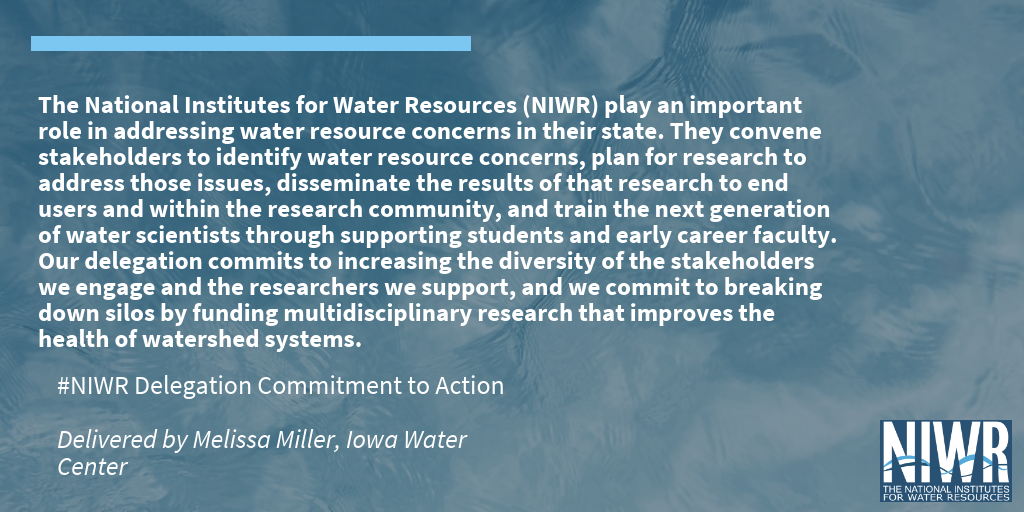In the water world, we talk a lot about working together. We all live in a watershed. The importance of partnerships. Work with your upstream neighbor to improve life downstream.
Sometimes, all it is, is talk. We say we want to work together, but it doesn’t happen, for whatever reason – maybe we can’t get together, we get busy with other things, we can’t agree on priorities. But the reason we talk about working together in water is because we do all live in a watershed. Working with your upstream neighbor DOES improve life downstream. Partnerships aren’t only important, they’re vital to success, and when we work together, impactful things happen.
Last week, 49 of the 54 Water Resources Research Institutes got together for the annual director’s meeting. The Virginia Water Resources Research Center planned the meeting this year (we had the honor last year) and for three days, we worked together.
A few droplets that represent the bigger “working together” stream:
-49 out of 54 WRRIs were in attendance. The meeting was in Washington, DC. The Virgin Islands made it. Alaska made it. Even Guam made it. (Actually, Guam director Shahram Khosrowpanah is a valued member of the NIWR board.) Distance didn’t preclude the Institutes from getting together.
-We heard from federal representatives that told us water resources research is headed toward the funding of collaborative, interdisciplinary research – multifaceted projects that address water resources not just from a technical perspective but also from a human dimension perspective. Water resources management IS the proverbial Big Picture. Research will treat it as such.
-Over a period of 24 hours, the Iowa, Illinois, and Tennessee Institutes went from chatting over a few sandwiches about potentially working on a regional effort to planning, identifying, and putting into action a plan to work with USGS Water Science Centers in our state and region to focus on making a difference in the Mississippi River basin. (More on that as it develops.) All three states have different priorities and run their Institutes a little differently, but we all have one goal.
This meeting was, and always is, a short period of time in which we focus on what it means to work together. Iowans, you have an opportunity to do the same thing next month at the Iowa Water Conference. Use the conference to not only learn about the latest in water management in Iowa, but to find people and organizations with whom you can work together. Work with your upstream neighbor; you WILL improve downstream. Partnerships ARE important. And for goodness sake, we all live in a watershed!
